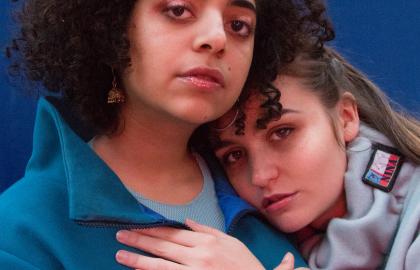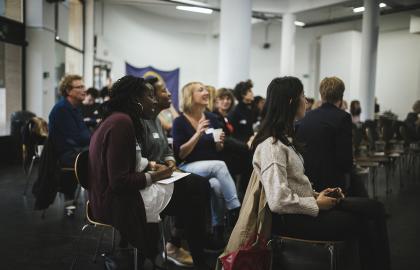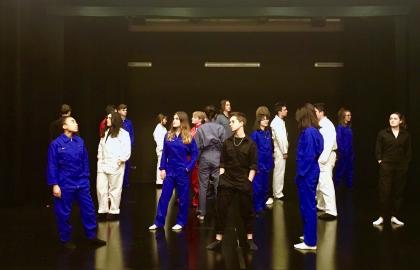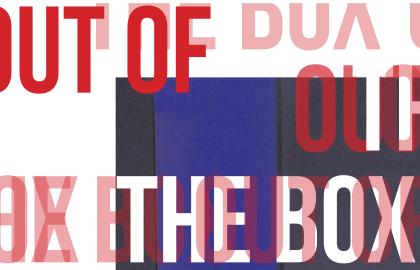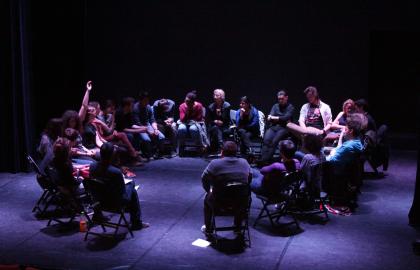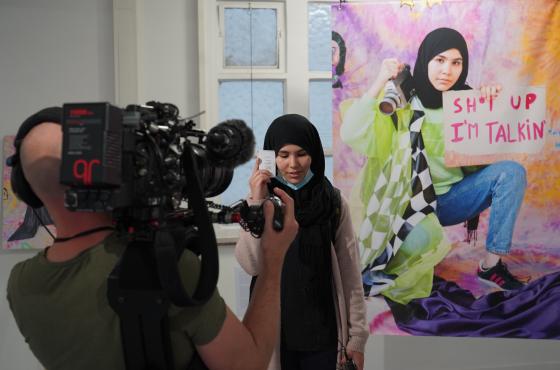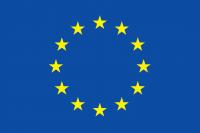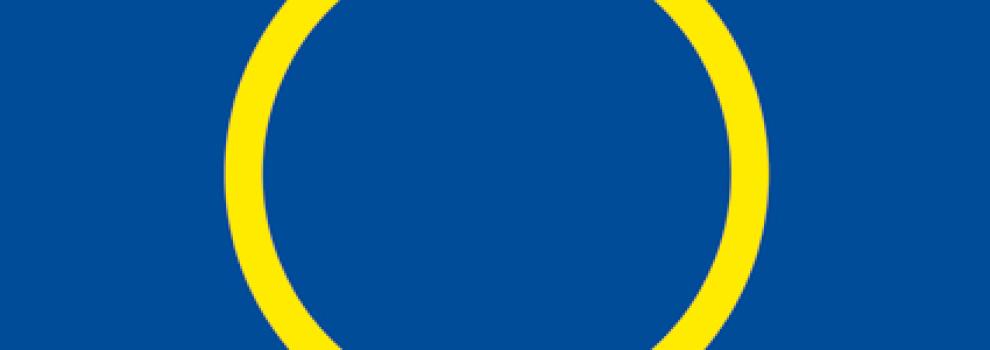
‘Next Generation, Please! 2017-2018’
Past event
Cancelled
Postponed
9 May'17 →
13 May'18
Following a successful first edition Next Generation, Please! is back with a bang! This year the project sets out from the same point of departure: bringing together young people, artists and politicians to write a new chapter in the European story. How does this generation see Europe? Does it have enough faith in the European story or has the existential crisis of the union dealt a fatal blow to the European dream?
This school year ten projects have been selected. Each project consists of a partner organisation, a group of young people and an artist who spend a year together on a political-artistic journey. The result (performance, installation, photography, video) is on display during a dynamic festival that runs from 9 till 13 May 2018 in BOZAR. In addition, there are two debates in which young people, artists and political experts can enter into dialogue about the political, social and economic challenges Europe is faced with. Guaranteed food for thought!
Discover the festival's programme (9 - 13 May 2018)
Who does what?
- The British-Jamaican poetess and performer Sukina Douglas is bringing together young people from KA Etterbeek and a Chicago youth club to focus on sensitive issues relating to diversity, social justice, taboos and stereotypes.
- The Belgo-Dutch grassroots citizens association Black Speaks Back and its participants will be questioning notions of a homogenous Europe with an investigation into "Afropean" identity. How do people with African roots regard European citizenship? In an Afro-futuristic musical they seek to answer questions from their past, present and future.
- On the basis of an investigation into border identities, students from the IHECS explore the various links established in border areas. They will be working with the artist Lou Vernin and participants in the three TESIM programmes on Europe's external borders. The ultimate question: What connects people separated by a border?
- Students from years 5 and 6 in the humanities and social sciences at the Emanuel Hiel Koninklijk Athenium team up with the filmmaker Leni Huyghe to investigate the power of rhetoric. In their own speech they set out their vision for Europe's future. What do they have to say about their role in the European story?
- With the ’68-18’ project artists Tine Guns, Jim Maes, Manuel Perez Canteria and Florence Aignier challenge students from Onze-Lieve-Vrouwe-Instituut in Ghent and the Institut Cartigny in Ixelles to reflect on present systems of government. With the protest movements of the 1960s as point of departure, they take a contemporary look at the obstacles in our democracy.
- The Omar Khayam Centre and students from the Collège La Fraternité will reflect on identities, migratory routes, protest and revolution in a series of creative workshops. At their "Agora des Idées” they will be sharing their vision of the issues facing society with the spectator.
- With the ‘EUtopia’ project the artist Nayra Martin Reyes is working with pupils from the art department of the Anderlecht Antheneum. A project that seeks to create a new, ideal Europe. What form would such a community take? On what values and norms are they building the new society? And what does this tell us about the society we live in today?
- Recognition (Lyse Ishimwe Nsengiyumva) will work together with Zinneke en Zinnema. In their project Apparition they will create an individual and collective body of work with a group of young women, under the artistic direction of Laura Nsengiyumva, Johanna Couvée and Joelle Sambi Nzeba (Solola Bien). The project hopes to bring a change in the current exclusive discourse on migration by having multiple voices and new European identities appear. Inclusive is the key word.
- The Institut Sainte-Marie in St Gilles and the Lycée Rodin in Paris are engaging in close cooperation. Various cultures and ways of thinking come together to build a common project, thanks to rather than in spite of these differences. The artist Vincent Glowinski and the choreographer K. will be accompanying the young people.
- In this unique project known as "Connecting Capitals - Global Citizenship" we will be building bridges between the deaf communities in Belgium and the United States. From an intersectional perspective, with respect for all the various layers that make up an identity, deaf citizens take a look at their respective cultural heritage. How does the interaction between democracy, nation, regionality and deaf culture operate? Click here for more information.
Political ambassador: Hendrik Vos (Ugent)
Artistic ambassador: Vincent Glowinski
Participating organizations:
MUS-E Belgium, De Pianofabriek, KVS, Destelheide, Instituto Cervantes, Black Speaks Back, IHECS, TESIM, Centre Omar Khayam, Recognition, Zinneke, Zinnema, Muntpunt, Cinema Galeries, Doof en Jong Vlaanderen
Participating schools and youth organizations:
KA Etterbeek, Institut Cartigny, Onze-Lieve-Vrouwe-Instituut Gent, IHECS, KA Emanuel Hiel, Institut Sainte-Marie, Lycée Rodin Paris, Kasterlinden, Jeugdhuis Chicago, Institut Saint-Vincent-de-Paul
Participating artists:
Christopher Daley, Emanual Owusu Bonsu, Jim Maes, Johanna Couvée, Julie Bougard, Laura Nsengiyumva, Leni Huyghe, Lyse Ishimwe Nsengiyumva, Lou Vernin, Nayra Reyes Martin, Sukina Douglas, Susu Amina, Tine Guns, Vincent Glowinski, Florence Aignier
Educational Activities
More information about our educational programme →Practical information
Audience
Education
Secondary Education
Higher Education
Main partner
Collaboration
Support
- CERA cvba
- Embassy of the United States of America to Belgium
- European Commission / TESIM
- European Union
- Nationale Loterij/Loterie Nationale
- Stichting P&V Fondation
- Fédération Wallonie-Bruxelles
Structural partner
